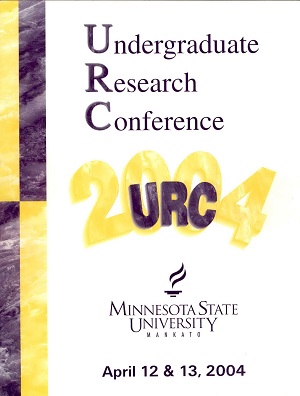Predator and Prey?: A Feminist Critique How Male and Female Sexuality is Represented in High School Sex Ed
Location
Ostrander
Start Date
13-4-2004 12:45 PM
End Date
13-4-2004 2:30 PM
Student's Major
Gender and Women's Studies
Student's College
Social and Behavioral Sciences
Mentor's Name
Susan Freeman
Mentor's Department
Gender and Women's Studies
Mentor's College
Social and Behavioral Sciences
Description
Sexual education in the United States has always been an issue of controversy as teachers, parents, administrators, and politicians work together and against each other to decide what students should and should not learn about sex. This project examined the degree to which comprehensive and abstinence-only adolescent sexual education guidelines employ gender stereotypes as well as traditional ideas about gender. Through feminist evaluation and comparison of the widely recognized comprehensive sexual education guidelines provided by the Sexuality Information and Education Council of the United States and the popular abstinence only Texas based program. Aim for Success, this project revealed assumptions about gender differences in adolescent sexual education today and how these assumptions teach teenagers the appropriate behavior for their gender and sex. This research began a larger project of evaluating sexual education in the United States and what teens are really being taught in today's political climate of abstinence and conservative sexual health.
Predator and Prey?: A Feminist Critique How Male and Female Sexuality is Represented in High School Sex Ed
Ostrander
Sexual education in the United States has always been an issue of controversy as teachers, parents, administrators, and politicians work together and against each other to decide what students should and should not learn about sex. This project examined the degree to which comprehensive and abstinence-only adolescent sexual education guidelines employ gender stereotypes as well as traditional ideas about gender. Through feminist evaluation and comparison of the widely recognized comprehensive sexual education guidelines provided by the Sexuality Information and Education Council of the United States and the popular abstinence only Texas based program. Aim for Success, this project revealed assumptions about gender differences in adolescent sexual education today and how these assumptions teach teenagers the appropriate behavior for their gender and sex. This research began a larger project of evaluating sexual education in the United States and what teens are really being taught in today's political climate of abstinence and conservative sexual health.




